The Legal Service Manual for International Talent Exchange (Foreign Experts 2021)
Dec 01, 2021
Legal Research and Service Center for Internationa
Content
1. The Preparation Before Signing the Contract
(a) Learning About Relevant Chinese Units
(b) Authentic Introduction of Personal Information
(c) Full Consultation on Contract-related Issues
2. The Signing and Performance of the Contract
(a) Issues Concerning the Work Tasks
(b) Issues Concerning Confidentiality Obligations
(c) Issues Concerning Work Results
(d) Non-competition Restriction
(e) Insurance
(f) Other Relevant Agreements
3. Intellectual Property Rights
(a) The Intellectual Property Rights of Experts and Their Former Working Units
(b) Intellectual Property Rights of Work Results
4. Remuneration and Taxation
(a) General Principles
(b) Individual Income Tax
5. Disputes and Resolutions
6. Ways to Search for Chinese Laws
Introduction
It has been 20 years since China submitted the Protocol on the Accession of the People’s Republic of China and joined the World Trade Organization in 2001. Following the principle of transparency of WTO, China’s national legislation is released on the Internet for easy retrieval. The “National Laws and Regulations Database” provided by the Standing Committee of the National People’s Congress of China provides a single-site search service involving China’s constitution, laws, administrative regulations, supervision regulations, judicial interpretations and local regulations. Its official website is https://flk.npc.gov.cn/index.html.
To help the experts to understand the relevant Chinese legal systems and adapt to the working and living environment as soon as possible to work better, this manual highlights the relevant legal contents according to different phases and events of experts’ work. As legal issues are professional and complex, prudent stance is needed to reduce legal risks. Therefore, for more personalized legal issues, you may consult legal provisions or legal professionals, or you can directly send an email to the Legal Research and Service Center for International Talent Exchange of Zhongnan University of Economics and Law for consultation. The email address is IES@zuel.edu.cn.
1. The Preparation Before Signing the Contract
Before the signing of the contract, experts are advised to obtain information about the Chinese units from multiple sources. Increased understanding can help to dispel misconceptions and prejudices.
(a)Learning About Relevant Chinese Units
(i) Main Channels for Learning About Relevant Chinese Unit
Before signing the contract, experts can also get more relevant information through official websites of relevant authorities and mobile applications in addition to asking peers for consultation. Relevant information of different units can be searched by different means. As for enterprises, the “National Enterprise Credit Information Publicity System” sponsored by the State Administration of Market Supervision of China offers comprehensive and detailed information, from which you can find relevant information. The official website is http://www.gsxt.gov.cn/index.html. Besides, for information about registered legal person of public institutions nationwide, you can search the “Office Assignment Code and Public Institutions Registration Management Network” sponsored by the Central Office of Public Institutions Registration Administration. The official website is http://www.gjsy.gov.cn/sydwfrxxcx/. For institutions whose nature are hard to define, you can visit the website of Credit China (website: https://www.creditchina.gov.cn/) to acquire the information including but not limited to the following: qualifications, eligibility, administrative licenses, administrative penalties, credit standings, and related risk alerts.
(ii)The Explanation for Relevant Units and Individuals
It should be noted that according to China’s Civil Code, state-owned enterprises are equal market entities as other enterprises with different types of ownership. All of them operate independently and assume sole responsibility for their own profits or losses. They are not parts of government departments or offices. Similarly, national or local universities and colleges and scientific research institutes are all independent legal subjects. They are neither parts of the government, nor agents of it. Military academies with national enrollment recruit civilian personnel and students graduating from local universities and colleges. According to Chinese law, they should not be considered as parts of armed forces or military personnel in active service.
As there is misunderstanding in the introduction of some media, the above explanation is made. And the reason for misunderstanding is the lack of correct understanding of the related Chinese law. Therefore, it is necessary to make a particular statement and clarification.
(b)Authentic Introduction of Personal Information
After the experts’ initial selection of the Chinese units and before the formal signing of the contract, the human resources department of relevant units will have an evaluation. So it needs to collect and know some personal information of the experts. The experts needs to provide necessary and authentic information, which is presented in the form of Letter of Commitment for Authenticity of Information Disclosure. This document, as part of the formal contract, is legally binding and needs to be read carefully and filled in line with facts.
The following is a reference of the Letter of Commitment for Authenticity of Information Disclosure:
Letter of Commitment for Authenticity of Information Disclosure
Date ______ Month _______Year ______
I, _______________,on (year)______ (month) _____ (date) _____, was hired by _______________(branch) of ____________ (organization), for the _____________ position.
In order to ensure the lawfulness of my work during the contract period, I am willing to undertake the authenticity of the following information. I am willing to bear all the legal liabilities arising from any incident or statements and deeds inconsistent with this letter of commitment.
I hereby commit to the following:
I. The resume and certificates provided by me are truthful and accurate, without any fraudulent elements. All contents of the Registration Form for Overseas Employees submitted by me are accurate and up to date. I have no criminal record in China or in my current residing country, nor have I been subject to any ongoing criminal prosecution.
II. The contents of the agreement between me and __________ are in full compliance with the regulations on outside full-time and/or part-time employment of the institutions, organizations and companies where I am employed full-time and/or part-time. I have disclosed the relevant contents of my work in ________________ to the institutions, organizations and companies where I am currently employed full-and/or part-time in accordance with relevant laws and regulations of China and the country where I am currently residing, and have obtained necessary approvals and permits.
III. The contents of the agreement between me and ___________ will not violate any non-compete agreements or covenants with any institution, organization or company where I currently employed full-time and/or part-time. The resources and time directly and indirectly used in my research and business activities at ___________________ do not constitute any infringement of the institutions, organizations and companies for which I am currently employed full-time and/or part-time.
IV. The scientific research and business activities involved in the agreement between me and ____________ are in full compliance with the laws and regulations of China and the country where I am currently residing on the protection of intellectual property and trade secrets. I am currently holding full intellectual property rights to the technology, process and other related intellectual resources (see appendix of contract for details) used in my scientific research and business activities in _____________ .
V. The scientific research and business activities involved in the agreement between me and ___________ will not violate the exclusive funding terms of any research project and grant that I am participating in or have participated in. My research activities based on the current agreement do not duplicate the contents of other research projects or grants I am participating in, nor do I use any research results and technologies with exclusive funding from any research projects or grants I have concluded.
VI. I am not currently under the effective limitation of any decryption period or desensitization period of any agreement I previously entered that would prohibit me from performing my duty under the agreement with ________________ .
VII. I understand and recognize that the signing and implementation of the agreement between me and ____________ are based on mutual respect for each party’s political, religious, cultural and value systems. The supreme and sole purpose of the performance of the agreement shall be the pursuit of scientific findings, technological progress and knowledge sharing, and there shall not and will not be any attached agenda of political gain, religious appeal or value expression. I will be guided by this understanding and recognition during the performance of this agreement.
(c)Full Consultation on Contract-related Issues
Contracts must comply with internationally-acknowledged legal guidelines. The contract between specialists and the unit need take the hours, tasks and ways of working into consideration, which should be decided one by one.
If there is any disagreement over the terms, concepts used in the contract, it is advised to give clarifications in a timely manner or record mutually-acknowledged understanding in such mutually-accepted documents as the memorandum of understanding.
2. The Signing and Performance of the Contract
After the consultation, the signing and performance of the contract requires a focus on work tasks and results.
Intellectual property issues concerning the results are detailed in Part III. Remuneration package and taxation are detailed in Part IV.
(a)Issues Concerning the Work Tasks
(i)The work task should be formally determined during consultation. And it should be clear and specific, or based on the work objectives to define the scope of work, for example, to participate in some ongoing project of a team or be responsible for product performance testing.
(ii)During the course of performance, the adjustment that the entity makes based on needs or progress of work and is accepted by experts, shall be considered as contract modification.
(b)Issues Concerning Confidentiality Obligations
(i)As mentioned above, any unit as an independent civil subject, regardless of its ownership form, shall comply with the requirements of system of confidentiality of work. Those system and laws related to protection of trade secrets, are binding on the experts.
(ii)The agreement on confidentiality obligations in the contract between the unit and the experts is subject to adjustment due to the work needs of the unit, and the adjusted content will affect the confidentiality obligations. For example, the staged innovative work results, obtained with the research progress of the team, need to be kept confidential. The work content that requires confidentiality includes the tender documents and the base bid price of overseas bidding that the experts come into contact with at work, and technical solutions in the process of applying for scientific research projects.
(c)Issues Concerning Work Results
(i)The requirements on the work progress and the work results, as well as the evaluation of the quality of work results, are important contents of the contract that require attention.
(ii)The evaluation subject, evaluation standard and evaluation method in relation with the quality of work results need to be specified in the contract.
(iii)During the performance of the contract, it is recommended to inform the unit in a timely manner when special circumstances occur, so as to prevent them from affecting the evaluation of the work results or triggering liability for breach of contract. The circumstances mentioned above include defects in experimental equipment or materials, or industrial injuries which seriously affect the progress of work or the quality of the work results.
(iv)The management system of the work results of the unit is also binding on the experts, such as the provisions on ensuring confidentiality of work and protecting work results before paper publication and patent application, as well as the procedures and provisions on carrying laptops equipped by the unit abroad or on business trips, etc.
(d)Non-competition Restriction
(i)If the expert has signed a non-competition agreement with other units or an agreement containing non-competition clauses before signing a contract with the unit, the unit shall be fully informed.
(ii)If there is a non-competition agreement signed between the expert and the unit or a non-competition clause in the signed agreement, it shall be strictly observed.
(e)Insurance
In order to better protect the personal and property safety during the period of working and living in China, it is recommended to purchase insurance. The payer and the guarantee amounts of insurances for industrial and accidental injuries can be stipulated in the contract. (For example, if the unit pay the vehicle and vessel tax or pay for the insurance for third-party accidental injuries on the behalf of the experts, related fees will be deducted from their salary.)
(f)Other Relevant Agreements
The liability clause for breach of contract shall be included in the contract.
3. Intellectual Property Rights
As a member of the World Intellectual Property Organization and the World Trade Organization, China has international treaty obligations to protect intellectual property rights. Respecting the intellectual property rights of others and protecting the intellectual property rights of research achievements are the basic standpoint of China’s Intellectual Property Law and the main starting point of this manual.
(a)The Intellectual Property Rights of Experts and Their Former Working Units
The unit shall respect the intellectual property rights of the experts and their former working units, and recommends that the experts should perform their work under the premise of distinguishing the ownership of the intellectual property rights of relevant achievements, and that the experts should avoid involving technical content to which they do not have access to or that even requires confidentiality in the work of the unit, so as to prevent unnecessary disputes.
(b)Intellectual Property Rights of Work Results
With respect to the intellectual property rights of the results from their work, the following legal provisions shall be considered:
(i)The provisions of China’s Copyright Law on commissioned work and service work, the provisions of the Patent Law on service inventions and collaborative inventions, and the provisions of the Anti-Unfair Competition Law on the protection of trade secrets are the main legal rules concerning the attribution of rights and legal protection of work results and their intellectual property rights.
(ii)The ownership of the copyright of the commissioned work shall be decided by mutual agreement. When there is no agreement or the agreement is unclear, the copyright belongs to the trustee.
(iii)Service work is works produced to fulfill the work tasks of the unit, of which the copyright shall be enjoyed by the author, but the unit shall have a priority right to use the work within the scope of its business activities. Within two years after the completion of the work, the author shall not, without the consent of the legal unit, authorize a third party to use the work in the same way as the legal unit does.
As an exception, for works that are created mainly with the materials and technical resources of the unit and for which the unit assumes responsibility, the author shall enjoy the right of authorship, while the unit shall enjoy other rights included in the copyright and may reward the author.
(iv)Service invention is the invention created due to the execution of tasks of the unit or made mainly by using the unit’s material and technical means. The right to apply for a patent for a service invention belongs to the unit; and after the application is granted, the unit is the patentee. The unit may, in accordance with the law, dispose of its right to apply for the patent for the service invention and the patent right, and promote the exploitation and application of the invention.
For any non-service invention, the right to apply for a patent shall belong to the inventor or designer. After the application is granted, the inventor or designer shall be the patentee.
For an invention made by taking advantage of the material and technical means of the unit , if there is a agreement between the unit and the inventor or designer regarding the right to apply for patent and the ownership of the patent, the contractual stipulations shall prevail.
The unit of temporary appointment also belongs to “the unit” stipulated in this agreement.
According to the Patent Law, the unit to whom a patent is granted shall reward the inventor or designer of the service invention and shall, after application of the patented invention, pay the inventor or designer a reasonable remuneration on the basis of the scope of the economic benefits yielded, and enable inventors or designers to rationally share the benefits of innovation in such forms as equities, options and dividends.
(v)Issues concerning collaborative invention and the attribution of its patent ownership. For an job-unrelated invention made by joint work or due to the commission of the third party, the right to apply for a patent shall, unless it is otherwise agreed upon, belongs to the unit and individually who created or jointly created the invention. After the application is granted, the unit or individual that filed the application shall be the patentee.
(vi)The right to apply for a patent and the patent right may be assigned. Where the right to apply for a patent or a patent right is assigned to a foreign civil subject, the parties concerned shall conclude a written contract, and have the contract registered in the General Office of the National Intellectual Property Administration. The assignment of the right to apply for the patent or the patent right shall come into effect as of the date of registration.
4. Remuneration and Taxation
In accordance with the Individual Income Tax Law of the People’s Republic of China and the relevant international tax treaties to which China is a party, experts are subject to the same statutory obligations to pay individual income tax as Chinese citizens, unless otherwise specified.
(a)General Principles
(i)It is a statutory obligation to pay tax in accordance with the law. Experts should pay tax on such income as salary paid by the unit, author’s remuneration, and consulting fees according to the contract in accordance with the law.
(ii)According to the Individual Income Tax Law, a distinction is made between comprehensive income and business income and different tax rates are applies.
(iii)When granting salaries or paying remuneration, although the unit has paid taxes on a monthly or transaction-by-transaction basis on behalf of the experts, the tax authorities will still calculate the individual income tax based on the combined annual income and refund the overpaid tax or require back payment of tax.
(iv)To facilitate the payment of income tax by individuals, the Chinese tax authorities have applications that can be used to declare income and pay tax at mobile information terminals after successful linkage with personal identification information.
(v)If the expert’s country and the Chinese government have signed an agreement on individual income tax, the agreement shall be followed.
(b)Individual Income Tax
An individual has stayed in the aggregate for 183 days or more of a tax year in China and obtains income from China had to pay the individual income tax. Depending on the specific conditions and the source of the income, there will be differences in the payment of individual income tax, which can be specified as follows:
(i)A resident individual is an individual who is domiciled in China or who is not domiciled in China but has stayed in the aggregate for 183 days or more of a tax year in China. A resident individual shall, in accordance with the provisions of this Law, pay individual income tax on his or her income obtained inside and outside China.
(ii)A nonresident individual is an individual who neither is domiciled in China nor stays in China or who is not domiciled in China but has stayed in the aggregate for less than 183 days of a tax year in China. A nonresident individual shall, in accordance with the provisions of Law, pay individual income tax on his or her income obtained inside China.
(iii)Individual income tax shall be paid on the following individual income:
(1) Income from wages and salaries;
(2) Income from remuneration for labor services; ( e.g., remuneration received for matters other than contracted work assignments assigned by the unit; remuneration received for lectures to other units)
(3) Income from author’s remuneration;
(4) Income from royalties; (e.g., patent licensing fees from licensing patent rights to others for use)
(5) Business income;
(6) Income from interest, dividends and bonuses;
(7) Income from the lease of property;
(8) Income from the conveyance of property;
(9) Contingent income;
Resident individuals shall calculate by tax year on a consolidated basis the individual income tax, and nonresident individuals shall calculate by itemization on a monthly or transaction-by-transaction basis the individual income tax, on the income obtained as set forth in subparagraphs (1) to (4) of the preceding paragraph (hereinafter referred to as the “comprehensive income”). The individual income tax on the income set forth in subparagraphs (5) to (9) of the preceding paragraph obtained by a taxpayer shall be calculated respectively in accordance with the provisions of this Law.
(iv)Calculation of the Amount of Taxable Income:
(1) For the comprehensive income of a resident individual, the amount of taxable income shall be the amount of income obtained in each tax year less expenses of 60,000 yuan, special deductibles, special additional deductibles, and other deductibles determined in accordance with the law.
(2) For the income from wages and salaries of a nonresident individual, the amount of taxable income shall be the amount of monthly income less expenses of 5,000 yuan. For the income from remuneration for labor services, author’s remuneration, and royalties, the amount of taxable income shall be the amount of income obtained each time.
(3) For the income from interest, dividends and bonuses and contingent income, the amount of taxable income shall be the amount of income obtained each time.
(4) The amount of income from remuneration for labor services, author’s remuneration, and royalties shall be reduced by subtracting expenses at 20% of the income obtained. The amount of income from author’s remuneration shall be calculated at 70% of the income obtained.
(5) For the income obtained by a resident individual from outside China, the amount of individual income tax already paid outside China by the individual may be deducted from the amount of tax payable by the individual, but the tax credit shall not exceed the amount of tax payable on the income obtained by the taxpayer from outside China as calculated in accordance with the provisions of this Law.
(6) Time Requirement for Filing Tax Payment: Where a resident individual obtains any income from outside China, the individual shall file a tax return from March 1 to June 30 of the next year after obtaining the income. Where a nonresident individual obtains any income from wages and salaries from two or more places inside China, the individual shall file a tax return with the tax authority within the first 15 days of the next month after obtaining the income. (This provision will come into effect in the case of part-time jobs.)
5. Disputes and Resolutions
(a)It is recommended to choose the ways of dispute resolution when signing the contract. Mediation, litigation and arbitration are all available options for dispute resolution.
(b)In the event of a dispute arising in the performance of the contract, the first recommendation is mutual negotiation.
(c)If negotiation fails, dispute resolution through mediation, litigation and arbitration may be considered.
If mediation is preferred, an application of mediation can be filed to the People’s Mediation Committee at the location of the unit free of charge.
If litigation is preferred, a lawsuit may brought in relevant court in accordance with the Civil Procedure Law of the People’s Republic of China and the litigation is charged by the court.
If arbitration is preferred, an application of arbitration can be filed to the mutually-agreed arbitration institution in accordance with the arbitration clause in the contract or the arbitration agreement signed by the parties and the arbitration is charged by the institution.
(d)It is advisable to consider the length of the expert’s stay in China in terms of the specific method chosen to resolve the dispute. Arbitration is the fastest and most efficient way of resolving disputes in comparison to the other two aforementioned methods.
6. Ways to Search for Chinese Laws
The official website of the National People’s Congress, the sole organ exercising national legislative power in China, has a one-stop search service for laws, administrative regulations, supervisory regulations, judicial interpretations and local regulations, and its official website is https://flk.npc.gov.cn/index.html. The State Intellectual Property Office of China is the administrative authority for intellectual property rights. The search website for trademarks is http://sbj.cnipa.gov.cn/sbcx/ and for patent applications is http://pss-system.cnipa.gov.cn/sipopublicsearch/portal/uiIndex.shtml. The above websites provide legal search services in Chinese.
The World Intellectual Property Organization provides IP law search services in both Chinese and English at https://wipolex.wipo.int/zh/main/legislation and Chinese law search services in English at https://wipolex.wipo.int/en/main/ legislation.
The above-mentioned website services for searching Chinese laws are free of charge. Bilingual legal documents published by some commercial organizations can be used as a reference. For a more accurate understanding of Chinese laws, it is still necessary to refer to the official legal documents published in China.

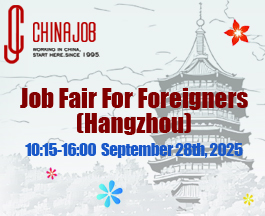
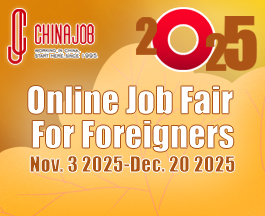
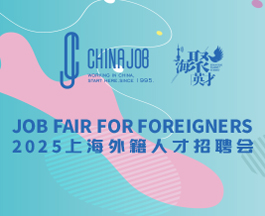
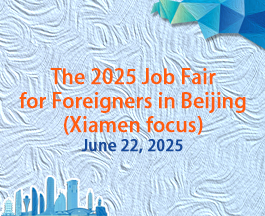

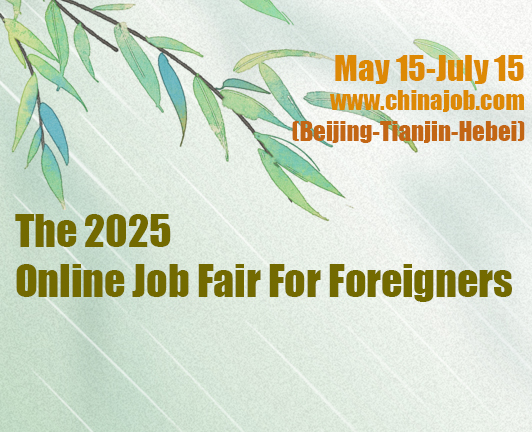


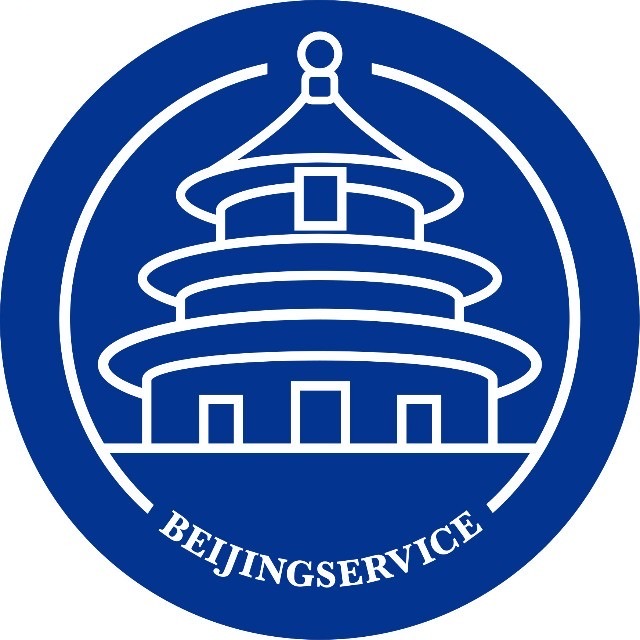




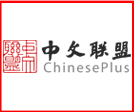
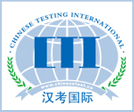

 京公网安备
京公网安备